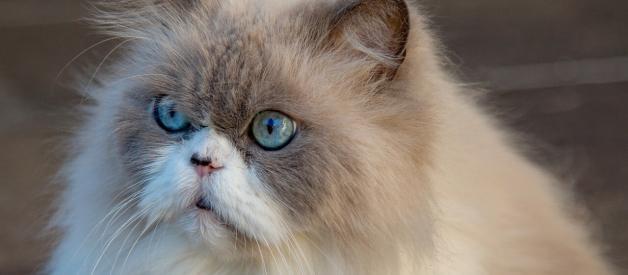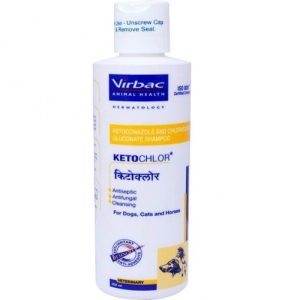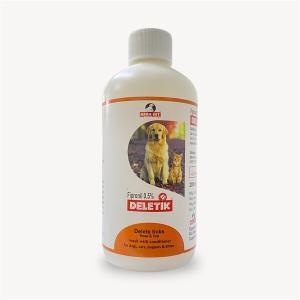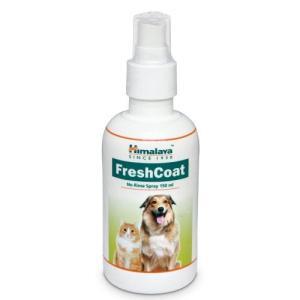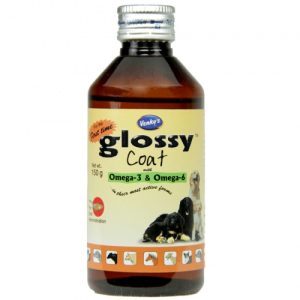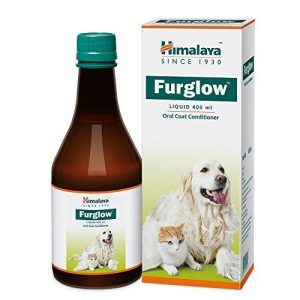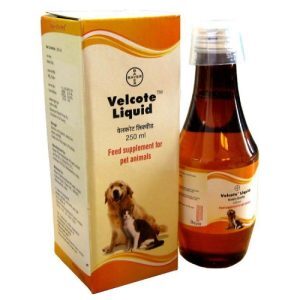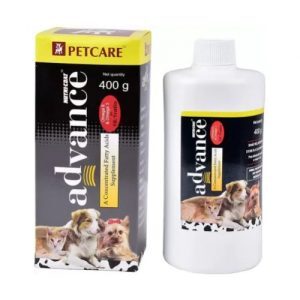Table of Contents
Keeping a cat’s hair healthy is important because it indicates good overall health, helps regulate body temperature, prevents skin issues, controls shedding, strengthens the bond between you and your cat, and reduces the risk of hairballs. Regular grooming and care contribute to your cat’s well-being and comfort. Let’s dive into the problem of what causes skin problems in cats.
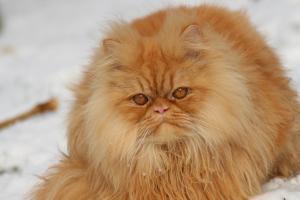
What Is Healthy Cat’s Hair
Healthy cat hair is a clean, well-groomed coat free from matting, excessive shedding, dryness, or skin problems. Here are some characteristics of healthy cat hair:
- Smooth and Shiny: Healthy cat hair appears smooth and has a natural sheen. It reflects light, giving it a glossy and lustrous appearance.
- Clean and Free from Odor: Healthy cat hair is clean and free from dirt, debris, or unpleasant odors. Regular grooming helps remove any buildup that can accumulate on the coat.
- Tangle and Mat-Free: Well-maintained cat hair is generally free from tangles and mats. Regular brushing helps prevent the formation of knots, keeping the hair smooth and manageable.
- Appropriate Thickness: The hair should have an appropriate thickness for the cat’s breed and age. It should neither be excessively thin nor thick, as both extremes can indicate underlying health issues.
- Minimal Shedding: While shedding is natural, a healthy coat experiences moderate shedding. Excessive or patchy hair loss may indicate health problems or nutritional deficiencies.
- Healthy Skin: Healthy cat hair is often a reflection of healthy skin. The skin beneath the coat should be clean, supple, and free from redness, inflammation, or visible sores, without cat skin problems like white scabs and red scabs on the cat’s skin problems.
Brushing and Grooming Your Cat
Brushing and grooming your cat is an essential part of their care routine. Here are some key points to consider when brushing and grooming your cat.
Regular brushing helps keep your cat’s coat clean, free from tangles and reduces shedding. It also provides an opportunity to bond with your cat. Use a suitable brush or comb depending on your cat’s hair type:
- Short-haired cats: Use a soft-bristle brush or a grooming mitt.
- Long-haired cats: Use a wide-toothed comb or a slicker brush to prevent matting and remove loose hair.
The frequency of brushing depends on your cat’s hair length and shedding tendencies. Long-haired cats generally require daily brushing, while short-haired cats may benefit from brushing once or twice weekly.
Approach grooming sessions calmly and gently to ensure your cat feels comfortable. Start with short sessions and gradually increase the duration as your cat gets used to it. Provide treats and praise as positive reinforcement.
While grooming, inspect your cat’s skin for any abnormalities, redness, swelling, or signs of parasites. Look out for fleas, ticks, or any unusual lumps or sores. If you notice anything concerning, consult your veterinarian.
Cats generally groom themselves and do not require frequent baths. However, a bath may be necessary in certain situations, for example, when your cat gets into something dirty or develops a skin condition. Use cat-specific shampoos and follow proper bathing techniques.
If you have a long-haired cat or find it challenging to groom it yourself, consider taking them to a professional groomer who can provide specialized grooming services, such as haircuts or de-matting.
Remember, grooming sessions should be positive and stress-free for you and your cat. Regular brushing and grooming help maintain your cat’s coat health and strengthen the bond between you and your feline companion.
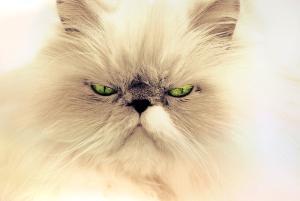
Give Your Cat a Proper Diet
A balanced and nutritious diet is crucial for maintaining a cat’s overall health, including the health of its hair. Here are some key dietary considerations to promote a healthy coat in cats by giving the best cat food for cats with common cat skin problems:
- Feed your cat a high-quality, commercially prepared food formulated to meet their nutritional needs. Look for products that are labeled as complete and balanced. These foods provide the necessary vitamins, minerals, and fatty acids for healthy skin and coat.
- Omega-3 and omega-6 fatty acids are important for promoting a healthy coat. These fatty acids can be found in fish, flaxseed, and certain types of fish like salmon. Consider incorporating these sources into your cat’s diet through specialized cat supplements or foods with added fatty acids.
- Cats are obligate carnivores and require a diet rich in animal-based protein. High-quality protein sources such as chicken, turkey, fish, or beef help maintain healthy hair growth.
- Cats have a low thirst drive, so adequate water intake is important. Wet or canned cat food can contribute to their overall hydration, which can help maintain the moisture balance in their skin and coat.
- While an occasional treat is fine, too many treats or table scraps can lead to an unbalanced diet and potential nutritional deficiencies. Stick to appropriate portions of nutritionally complete cat food for their main meals.
- Every cat has unique dietary needs, and your veterinarian is the best resource to guide you on specific dietary recommendations based on your cat’s age, breed, health condition, and any special requirements they may have.
Use Bathing Products Meant for Cats
How to ease cat skin problems?
Using bathing products specifically formulated for cats is important because they are designed to maintain the pH balance of their skin, prevent irritation, and ensure the products are safe for their sensitive skin and coat.
Medicated Shampoo
Medicated cat shampoos are specially formulated products with therapeutic ingredients to address specific skin and coat conditions. These shampoos alleviate or manage various issues, such as fleas and ticks, skin irritations, itching, dermatitis, fungal or bacterial infections, and seborrhea, address dry or flaky skin and help resolve long hair cat skin problems.
It’s important to note that medicated shampoos for cats should be used as directed by a veterinarian. They are typically recommended for specific conditions or as part of a treatment plan, and it’s crucial to follow the instructions provided to ensure safe and effective use. Consulting a veterinarian is essential to determine the appropriate medicated shampoo for your cat’s needs and how to treat skin problems in cats, especially if a cat has an auto-immune skin problem.
Ketochlor (Ketoconazole, Chlorohexidine Gluconate), 200ml
Ketochlor is a medicated shampoo that contains two active ingredients: Ketoconazole and Chlorhexidine Gluconate.
Ingredients
- Ketoconazole is an antifungal agent. It works by inhibiting the growth of fungi, including yeasts and dermatophytes. It is effective against various fungal infections affecting a cat’s skin and coat, including skin problems in black cats.
- Chlorhexidine Gluconate is an antibacterial agent. It helps eliminate or reduce the growth of bacteria on the skin. It is effective against a wide range of bacteria, including both gram-positive and gram-negative bacteria.
How to Use
It is typically used in dermatitis, yeast infections, ringworm, or pyoderma cases.
Before using Ketochlor, it is recommended to wet your cat’s coat thoroughly with warm water. Apply enough Ketochlor shampoo to create a rich lather and gently massage it into the cat’s skin and coat. Allow the shampoo to remain on the cat’s skin for 5-10 minutes to allow the active ingredients to work. Rinse the coat thoroughly with clean water to remove all traces of the shampoo. The frequency of use may vary depending on the severity of the condition, but it is generally used 2-3 times per week initially and then less frequently as the condition improves.
Benefits:
- Ketochlor’s active ingredients, Ketoconazole and Chlorhexidine Gluconate, work together to combat fungal and bacterial infections on the cat’s skin.
- It helps relieve symptoms such as itching, inflammation, redness, and irritation associated with these infections.
- The antifungal and antibacterial properties of Ketochlor help restore a healthier skin balance and promote healing.
- Regular use of Ketochlor as directed by your veterinarian can aid in resolving skin infections, leading to improved skin health and a healthier coat for your cat.
Deletik (Fipronil), 0,5% 200ml
Deletik Shampoo is designed for dogs and cats to combat various ticks, lice, and mites that infest their fur. By targeting the nervous system of these parasites, shampoo helps eliminate them. It protects against paralysis ticks, flea allergy dermatitis, and other potential health issues associated with these infestations.
Ingredients
Fipronil is an active ingredient used in veterinary products to control and eliminate fleas, ticks, and other external parasites in dogs and cats.
Benefits
- Fipronil is highly effective against fleas, ticks, lice, and other external parasites.
- Deletik can relieve pets suffering from flea allergy dermatitis, a common skin condition caused by flea bites. By eliminating fleas, the shampoo helps alleviate itching, inflammation, and discomfort associated with this allergic reaction.
- Fipronil has residual activity, meaning it remains active on the pet’s skin and coat for a certain period. This protects against new flea and tick infestations, reducing re-infestation risk.
- When applied correctly, it is generally considered safe for dogs and cats.
- Deletik offers a convenient method of application. The shampoo can be applied during regular bathing routines, making incorporating parasite control into the pet’s grooming regimen easier.
- The shampoo can be part of an integrated approach to parasite control, complementing other preventive measures such as spot-on best treatment for cat skin problems, collars, or environmental control methods.
Spray Freshcoat (Jambira, Tulasi, Ushira), 150 ml
FreshCoat No Rinse Spray is the best medicine for cat skin problems. It is a convenient solution for in-between baths. Spray it onto your pet’s coat and brush through to experience its cleaning, deodorizing, and detangling effects.
Ingredients
The spray contains key ingredients such as Jambira, known for its natural deodorizing properties, Tulasi, a herbal antiseptic, and Ushira, an insect repellant. This formula leaves your pet’s coat smelling fresh and revitalized.
Benefits
It is particularly beneficial for young puppies not yet ready for full baths. The no-rinse spray provides a fresh and lustrous coat, maintaining cleanliness and hygiene without water. It offers a quick and convenient bath alternative, leaving a soothing and refreshing fragrance. Additionally, it acts as a natural deodorizer, repelling insects and bacterial infections, ensuring your dogs stay free from unpleasant odors. It also helps to avoid small black dots on the cat’s skin problems.
Use Supplements
Pet supplements can provide additional support for their health by filling nutritional gaps, promoting joint health, improving skin and coat condition, aiding digestion, enhancing the immune system, supporting cognitive function, and managing specific conditions. It’s important to consult with a veterinarian before starting any supplements for your pet.
Glossy Coat (Vitamins, Fatty Acids), 150ml
Venky’s Glossy Coat is a supplement that promotes healthy skin and a shiny coat in dogs. This unique formula enhances your dog’s overall well-being and appearance by providing essential vitamins, minerals, and crucial fatty acids like Omega-3, Omega-6, EPA, and DHA. It can help your dog feel good, look better, and maintain optimal health. Additionally, it aids in revitalizing the coat after a disease or infection, promoting hair recovery and rejuvenation.
Ingredients
Each 5g contains:
- Linoleic acid, Linolenic acid, Oleic acid 3000 mg
- Eicosapentaenoic acid 42.5 mg
- Docosahexaenoic acid 27.5 mg
- Gamma linolenic acid 11.0 mg
- vitamin A 1000 IU
- vitamin E 10 IU
- vitamin D3 100 IU
Benefits
- The supplement promotes the development of healthy skin and a shiny, lustrous coat in cats. It contains essential nutrients that nourish the skin and contribute to a vibrant, glossy coat.
- It is enriched with vital vitamins and minerals necessary for your cat’s well-being. These nutrients support various bodily functions and help maintain optimal health.
- The supplement can be conveniently administered by mixing it with your cat’s food.
- The supplement is formulated to help stimulate your cat’s appetite. It can be particularly beneficial for cats with a decreased interest in food or experiencing a loss of appetite.
Furglow Oral Coat Conditioner (Vitamin A, Vitamin E, Selenium, Zinc) 200ml
Furglow Oral Coat Conditioner is a specialized product that promotes a healthy coat in cats and dogs.
Ingredients
- Vitamin A plays a crucial role in maintaining skin and coat health. It supports cell growth, tissue repair, and the production of natural oils that contribute to a shiny and lustrous coat.
- Vitamin E is a powerful antioxidant that helps protect the skin and coat from damage caused by free radicals. It supports skin health, reduces inflammation, and promotes a healthy coat.
- Selenium is an essential mineral that works in conjunction with antioxidants to support a healthy immune system. It helps protect the skin and coat from oxidative stress and maintains their overall health.
- Zinc is a vital mineral that plays a role in many biological processes, including developing and maintaining healthy skin and coat. It supports cell division, wound healing, and the production of essential proteins for hair growth.
Usage and Instructions
Furglow Oral Coat Conditioner is typically administered orally by mixing the recommended dosage with your pet’s food. Generally, Furglow can be used daily or as your veterinarian recommends for optimal results.
Benefits
- Furglow Oral Coat Conditioner provides essential nutrients that support skin and coat health, promoting a shiny and healthy appearance.
- The active ingredients, including Vitamin A, Vitamin E, Selenium, and Zinc, work together to nourish the skin, support hair growth, and protect against oxidative damage.
- It can help address various coat-related issues such as dryness, dullness, and brittle hair.
- Furglow can also support overall immune health and your pet’s well-being.
Velcote (Vitamins A, D3, E), 250ml
Velcote is a nutritional supplement designed to support dogs’ and cats’ healthy skin and coats. It contains the active ingredients Vitamin A, Vitamin D3, and Vitamin E. Here is detailed information about these ingredients and the usage of Velcote:
- Vitamin A: Vitamin A is crucial in maintaining skin and coat health. It promotes cell growth, helps regulate oil production in the skin, supports overall skin health, and may help avoid cat skin problems with black flakes on the cat”s chin or scalp.
- Vitamin D3: Vitamin D3 is essential for proper calcium absorption and metabolism. It aids in maintaining healthy skin and supporting bone health and overall well-being.
- Vitamin E: Vitamin E is a potent antioxidant that helps protect cells from oxidative damage caused by free radicals. It contributes to skin health, helps maintain moisture balance and avoid cat skin problems like black specks in eyes and hair, and supports a healthy coat.
Usage and Instructions
- Velcote is typically administered orally by mixing the recommended dosage with your pet’s food.
- The specific dosage and frequency may vary based on your pet’s size, weight, and needs. It is important to follow the instructions provided on the product packaging or as directed by your veterinarian.
- Velcote can be used as a daily supplement for optimal results, especially for pets with dry, dull, or brittle coats.
Benefits
- Velcote provides essential vitamins that support skin health and promote a shiny, lustrous coat.
- The active ingredients, including Vitamin A, Vitamin D3, and Vitamin E, work synergistically to nourish the skin, support cell growth, and protect against oxidative damage.
- It can help address skin and coat issues such as dryness, flakiness, and poor coat quality.
- Velcote may also aid in maintaining proper moisture balance and overall skin health.
- The supplement is especially beneficial for pets with skin conditions, seasonal shedding, or those needing additional support for their coat health.
Nutri-Coat Advance (Omega 3, Omega 6), 200ml, 400ml
Nutri-Coat Advance is a nutritional supplement that supports healthy skin and coat in dogs and cats. It contains two key active ingredients: Omega-3 and Omega-6 fatty acids. Here is detailed information about these ingredients and the usage of Nutri-Coat Advance:
- Omega-3 fatty acids, such as eicosapentaenoic acid (EPA) and docosahexaenoic acid (DHA), are essential for optimal skin and coat health. They have anti-inflammatory properties and help nourish the skin, improve coat texture, and reduce itching and irritation. Omega-3 fatty acids also support cardiovascular health and promote a healthy immune system.
- Omega-6 fatty acids, including linoleic acid and gamma-linolenic acid (GLA), are important for maintaining the integrity of the skin barrier. They help retain moisture, promote skin elasticity, and support healthy hair growth. Omega-6 fatty acids also play a role in regulating inflammation in the body.
Usage
Nutri-Coat Advance is typically administered orally by mixing the recommended dosage with your pet’s food. Nutri-Coat Advance is often used as a daily supplement to consistently intake essential fatty acids for optimal skin and coat benefits.
Benefits
- Nutri-Coat Advance provides a balanced combination of Omega-3 and Omega-6 fatty acids, vital for promoting healthy skin and a shiny coat.
- The active ingredients help alleviate skin irritations, reduce itching and inflammation, and improve the overall condition of the coat.
- They support the skin’s natural barrier function, helping to retain moisture and protect against external irritants.
- Nutri-Coat Advance may also contribute to a healthy immune system, cardiovascular health, and overall pet well-being.
As with any supplement, it is recommended to consult your veterinarian before using Nutri-Coat Advance or any other supplements for your pet. They can guide the appropriate dosage, frequency, and suitability for your pet’s needs, ensuring the best possible results and safety.
FAQ
How often should I wash a cat?
The frequency of cat washing depends on several factors, including the cat’s coat type, activity level, and overall health. In general, most cats groom themselves and do not require frequent baths. However, certain circumstances may necessitate bathing, such as when a cat gets into something sticky or dirty. If your cat has a specific skin condition or your veterinarian recommends regular bathing, they will guide the appropriate frequency and bathing techniques to ensure your cat’s skin and coat health.
Can cat food cause skin problems?
Yes, certain ingredients in cat food can potentially cause skin problems in cats. Food allergies or sensitivities can manifest as skin issues, such as itching, redness, rashes, or excessive shedding. Common allergens in cat food include certain proteins (e.g., beef, chicken, fish), grains (e.g., wheat, corn, soy), or artificial additives. If you suspect your cat’s food is causing skin problems, consult your veterinarian. They can help you determine how to cure skin problems in cats and recommend the best food for cats with skin problems that address your cat’s nutritional needs while minimizing potential allergens.
Can scratching your cat cause skin problems?
Excessive scratching by your cat or overzealous scratching from humans can lead to skin problems. Cats naturally scratch to groom themselves, remove dead skin cells, and maintain healthy claws. However, vigorous or constant scratching may cause skin irritation, abrasions, or even secondary infections. It is essential to discourage aggressive scratching and provide appropriate outlets for your cat’s natural scratching behavior, such as providing scratching posts or pads. Regular nail trims can also help minimize the risk of accidental scratches. If your cat exhibits persistent or excessive scratching that results in skin problems, it’s advisable to consult with a veterinarian to identify the underlying cause and provide appropriate treatment.
Olivia Bennet is a veterinarian who has worked in a veterinary clinic for many years. She specializes in the diagnosis, disease prevention, and treatment of not only cute kittens and puppies but also large farm animals. Olivia loves animals, cares about them, and wants to help you know more about your pets.

